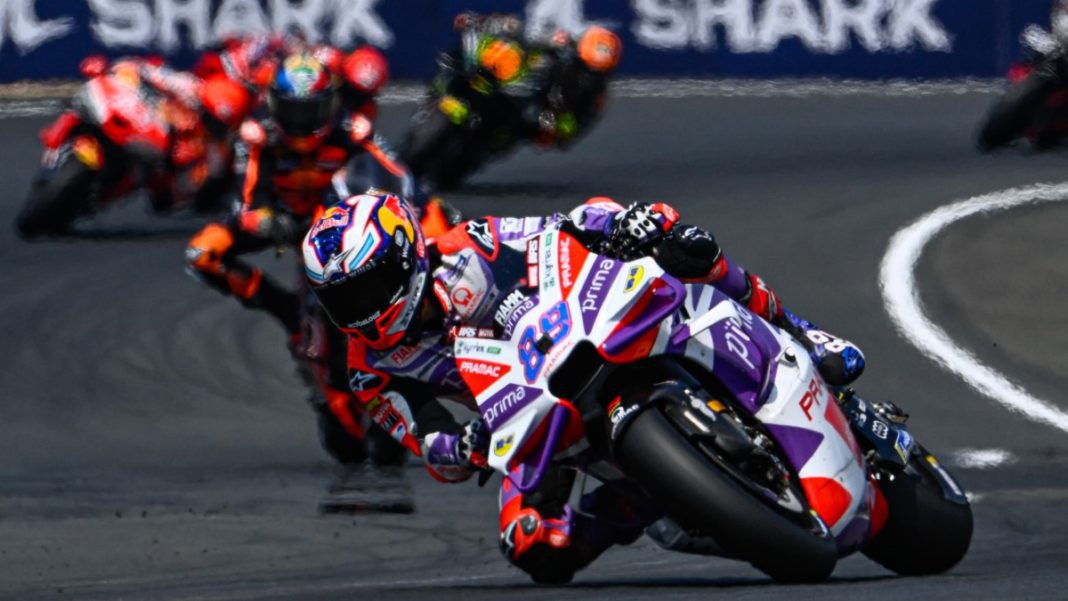ENGLAND: As the 2023 MotoGP season unfolds, the spotlight falls on a crucial regulation change that aims to address the exploitation of tyre pressure grey areas.
Following revelations in 2022 of teams running outside the recommended limits, new regulations were set to be enforced in 2023, mandating minimum front and rear tyre pressures.
However, the implementation was deferred several times to ensure comprehensive testing of unified tyre pressure sensors. Finally, the rule will take effect at August’s British Grand Prix at Silverstone.
The new regulations require riders and teams to adhere to a minimum front tyre pressure of 1.9 bar (27.6 psi) and 1.7 bar (24.7 psi) on the rear. These pressures will be closely monitored during sprint races and grands prix, marking a significant shift towards fair competition and safety in MotoGP.
To ensure a smooth transition, penalties will be applied on a graduated scale. A first offence will result in a warning, with each subsequent violation incurring time penalties.
The scale will escalate, with three seconds added for the second offense, followed by six seconds for the third, and finally a 12-second penalty for further transgressions.
Eventually, disqualification awaits any rider caught operating their tyres outside the minimum pressure limits once teams have adapted to the new system.
However, this regulation change has not been without its critics. During pre-season testing in February, several riders expressed concerns about the safety implications, particularly regarding the front tyre pressures.
Alex Marquez, a rider with Repsol Honda, voiced his skepticism, highlighting that the new front tyre pressure rule seemed illogical and potentially unsafe during races. He cited the risk of disqualification during races and the impact it could have on the competition.
Moreover, testing of the new system revealed discrepancies in the readings between the manufacturers’ tyre pressure sensors and the new specification system.
Aleix Espargaro from Aprilia raised concerns about these inconsistencies, sparking debates about the accuracy and reliability of the monitoring system.
As the season progressed, other issues came to the forefront, with some riders expressing difficulties overtaking on current MotoGP bikes. Rocketing front tyre pressures were identified as a contributing factor, further underscoring the importance of effectively implementing the new regulations.
The enforcement of the tyre pressure rules is seen as a significant step towards leveling the playing field in MotoGP. By eradicating the exploitation of grey areas, the sport aims to enhance safety and ensure fair competition among riders and teams.
However, the challenges associated with the new system and the concerns raised by riders demand careful attention and constant improvements to guarantee the success of the new regulations.
As the countdown to the British Grand Prix at Silverstone begins, the MotoGP community remains watchful, hoping that the new tyre pressure regulations will bring about the desired changes and elevate the sport to new heights of excitement and safety.
Also Read: Danica Patrick Sparks Controversy with Controversial Views on Women in Motorsport



